In "An Enquiry Concerning Human Understanding," David Hume presents a rigorous philosophical investigation into the nature and limits of human knowledge. Employing a clear and accessible prose style, Hume navigates the complexities of empiricism, skepticism, and the role of experience in shaping our understanding of the world. The work critiques metaphysical speculation and emphasizes the importance of empirical evidence, leading to Hume's famous assertions regarding causation and induction. This influential text serves as a foundational piece in modern philosophy, engaging with contemporary and historical thoughts, ultimately challenging readers to reconsider the nature of belief and knowledge. David Hume, a central figure of the Scottish Enlightenment, was profoundly influenced by the scientific advances of his time and the empirical traditions laid by earlier philosophers. His keen insights into human psychology, combined with his background in history, economics, and ethics, informed his exploration of how rationality and emotion intersect in forming human beliefs. Hume's own life experiences and intellectual environment shaped his skeptical approach, prompting him to interrogate deeply held assumptions about human understanding and the foundations of knowledge. This book is an essential read for anyone interested in the philosophical underpinnings of epistemology and metaphysics. Hume's clear arguments and thought-provoking inquiries challenge readers to engage with timeless questions about knowledge and belief. Whether you are a student of philosophy or a curious reader, this examination of human understanding invites deep reflection and potentially transformative insights.

The Greatest Books of Spiritual Wisdom : The Age of Reason, As a Man Thinketh, The Holy Spirit…
Martin Luther, John Stuart Mill, David Hume, James Allen, Ralph Waldo Emerson, Andrew Murray, Thomas Paine, Ludwig Feuerbach, G. K. Chesterton, Friedrich Nietzsche, Thomas à Kempis, Leo Tolstoy, Charles Spurgeon, Wallace D. Wattles, Prentice Mulford, St. Teresa of Ávila, Saint Augustine, Florence Scovel Shinn, H. Emilie Cady, Gregory of Nyssa, Pope Gregory I, Athanasius of Alexandria, Basil the Great, John of Damascus, Saint, Brother Lawrence, Arthur Pink
book
The History of England Volume 6 : Containing the Commonwealth, Charles II and James II
David Hume
audiobook
The History of England Volume 5 : James I and Charles I
David Hume
audiobook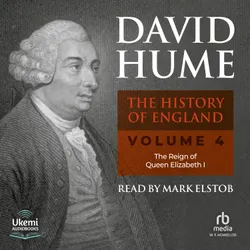
The History of England Volume 4 : The Reign of Queen Elizabeth I
David Hume
audiobook
The History of England Volume 3 : From Henry VII to Mary
David Hume
audiobook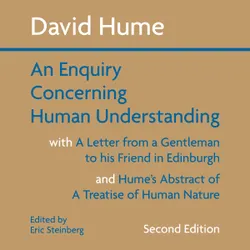
An Enquiry Concerning Human Understanding: with A Letter from a Gentleman to his friend in Edinburgh and Hume’s Abstract of A Treatise of Human Nature
David Hume
audiobook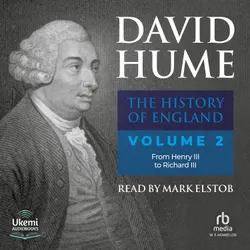
The History of England Volume 2 : King Henry III to King Richard III
David Hume
audiobook
The History of England Volume 1 : From the Invasion of Julius Caesar to King John
David Hume
audiobook
An Enquiry Concerning the Principles of Morals and Other Works
David Hume
audiobook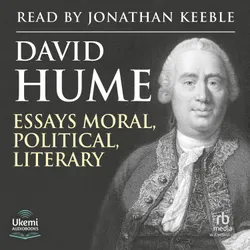
Essays, Moral, Political, and Literary
David Hume
audiobook
50 Meisterwerke der Philosophie : Metaphysik, Das Gastmahl, Bhagavadgita, Tractatus logico-philosophicus, Kritik der reinen Vernunft, Also sprach Zarathustra, Selbstbetrachtungen von Marcus Aurelius
Ludwig Wittgenstein, Edmund Husserl, Karl Marx, Søren Kierkegaard, Friedrich Nietzsche, Ralph Waldo Emerson, John Stuart Mill, Georg Wilhelm Friedrich Hegel, Friedrich Schelling, Johann Gottlieb Fichte, Immanuel Kant, John Locke, Montesquieu, Jean Jacques Rousseau, David Hume, Gottfried Wilhelm Leibniz, Baruch Spinoza, Konfuzius, Laotse, Platon, Xenophon, Aristoteles, Marcus Tullius Cicero, Seneca, Epiktet, Marc Aurel, Plotin, Thomas von Aquin, Nicolaus von Cues, Erasmus von Rotterdam, Niccolò Machiavelli, Tommaso Campanella, Martin Luther, Giordano Bruno, Samuel von Pufendorf, Abbé Castel de Saint-Pierre, Michel de Montaigne, René Descartes, Francis Bacon, Blaise Pascal
book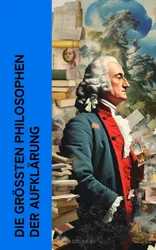
Die größten Philosophen der Aufklärung : Neues Organon, Kritik der reinen Vernunft, Der Gesellschaftsvertrag, Candide, Monadologie, Mathematische Principien der Naturlehre
Jean-Jacques Rousseau, Voltaire, Denis Diderot, David Hume, Johann Gottfried Herder, John Locke, Thomas Hobbes, Benjamin Franklin, Francis Bacon, Immanuel Kant, Montesquieu, Baruch Spinoza, Isaac Newton, Freiherr Gottfried Wilhelm von Leibniz, René Descartes
book
